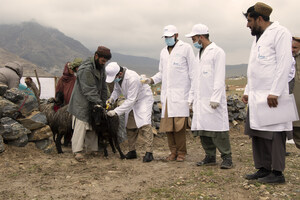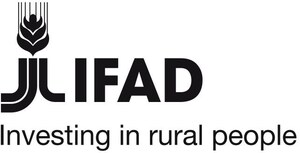ROME and NEW YORK, June 14, 2019 /PRNewswire/ -- Remittances from international migrant workers are expected to rise to over US$550 billion in 2019, Gilbert F. Houngbo, President of the International Fund for Agricultural Development (IFAD), stated today.
In a message released on the occasion of the United Nations' International Day of Family Remittances (IDFR), observed each 16 June, Houngbo noted that the money sent home by the world's 200 million migrant workers adds up to more than three times the level of official development assistance (ODA) and surpasses foreign direct investment (FDI). An impressive figure given that it corresponds to only 15 per cent of migrant workers' earnings, with 85 per cent remaining in host countries.
If current trends continue, it is projected that $8.5 trillion will be transferred in developing countries between 2015 and 2030. By then, it is estimated that over $2 trillion will have been saved or invested.
"Governments, regulators and the private sector have an important role to play in leveraging the effects of these flows and, in so doing, helping nearly one billion people to reach their own sustainable development goals by 2030," Houngbo added.
The crucial contribution of migrant workers has also been recognized in the Global Compact for Safe, Orderly and Regular Migration. Global efforts have also been underway to bring transfer costs closer to the 3 per cent target identified in SDG 10.
Linking these flows with financial services and, in the process, bringing millions of people into the financial sector, remains one of the greatest development opportunities that remittances offers.
"Over the past decade, IFAD has financed more than 60 projects aimed at leveraging the development impact of remittances in rural areas," said Paul Winters, IFAD Associate Vice-President, speaking at an event held today at UN Headquarters in New York recognizing the international day and its #FamilyRemittances2030 campaign.
"Providing better access to and use of remittances through rural financial institutions has had a positive impact in rural areas by bringing many unbanked recipients into the formal financial sector," he added.
"It is in these areas where remittances can help to make migration a choice rather than a necessity for many young people and future generations."
Contacts: Jessica Thomas, IFAD Communications – [email protected], +39-0654592215
SOURCE International Fund for Agricultural Development

Related Links
WANT YOUR COMPANY'S NEWS FEATURED ON PRNEWSWIRE.COM?
Newsrooms &
Influencers
Digital Media
Outlets
Journalists
Opted In





Share this article